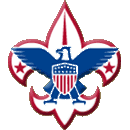
|
||
|
|
Viking Council
Exploring -
![]() Explorer Leadership Training
Explorer Leadership Training
![]() Viking Council Exploring Resources
Viking Council Exploring Resources
|
|
|
|
|
|
|
|
|
|
|
|
|
|
The ProgramExploring in the Viking Council is part of the Boy Scouts of America's youth development program for young men and women 14 (who have completed the eighth grade) through 20 years of age. Exploring's purpose is to provide experiences to help young people mature and to prepare them to become responsible and caring adults. Explorers are ready to explore the meaning of interdependence in their personal relationships and in their communities. Exploring is based on a unique and dynamic relationship between youth and the organizations in their communities, Local community organizations initiate a specific Explorer post by matching their people and program resources to the interests of young people in the community. The result is a program of activities that helps youth pursue their special interests, grow, and develop. The program of each Explorer post is unique as it is developed around the interests and capabilities of adults in the organization. Explorer posts can specialize in a variety of career or hobby subjects and plan programs that offer Career
Leadership
Fitness
Social
Service
Outdoor
GoalsYoung adults involved in Exploring should
The Methods of ExploringThe methods of Exploring have been carefully chosen to meet the needs of young adults.
Curiosity, exploration, and adventure. This happens through new experiences that provide opportunities for acquiring new skills and participating in action-oriented activities. Explorer Post SpecialtiesViking Council features many types of career and hobby/sport based posts. Every Explorer post "specializes" in a specific career, hobby, sport, or outdoor program area. More than 100 different specialties have been organized, ranging from accounting to zoology. Some specialty programs have grown to include a national committee, activities, and staff support. Explore the variety of Viking Council Posts. These include: Medical and Health Careers. The American Medical Association and other national health organizations support the organization of posts in hospitals, clinics, medical centers, schools, and other health-care organizations. These posts render valuable community service and provide members on insight into a variety of career opportunities. Law Enforcement. This specialty is supported by a grant from the Law Enforcement Assistance Administration, endorsement by the International Association of Chiefs of Police, and help from other national law enforcement organizations and industries. More than 2,172 police and sheriff's departments have organized Explorer posts specializing in law enforcement. These posts can provide assistance in crime prevention programs and traffic control, and as aides to patrol officers. Aviation. The aviation specialty encompasses a range of programs, including maintenance, gliders, operations, construction, flight attendants, airport management, and aerospace. Aviation Explorer posts provide programs and activities for youth interested in career or avocational fields. The Federal Aviation Association supports this growth along with aviation organizations, unions, and industries. Law and Government. The American Bar Association and other organizations support the high interest of many youth in low or government participation through Exploring. Low Day activities, mock trials, and other law-related activities provide firsthand experience in America's legal and court system. Sea Exploring. The oldest specialty program started as Sea Scouts in 1912 and has grown into a structured program of nautical instruction, tradition, and activities. Sail and power boats, safety, oceanography, and other maritime activities offer exciting and worthwhile programs for young men and women interested in the sea. Outdoor Adventure. Camping, hiking, canoeing, ecology, mountaineering, field sports, and fishing are but a few of the outdoor-related posts found across America. All posts include outdoor activities, and many specialize in them, stressing conservation, safety, and proper outdoor living. Sports. In cooperation with the U.S. Olympic Committee and many national sports organizations, Exploring serves as a youth development program for Olympic and other sports. Some posts concentrate on a specific sport such as gymnastics, aquatics, cycling, archery, or volleyball, while others plan a variety of sports and fitness programs. In addition to competition, young adults are offered the opportunity for sports and fitness activities, such as coaching, training, careers, youth instruction, nutrition, and officiating. Others. In addition to the above, the other popular Explorer post specialties include conservation, computers, engineering, firemanship, music, business, science, automotive, rescue, skiing, radio-TV, military, communications, electronics, secretarial, architecture, banking, photography, accounting, and journalism. Ethics in ActionAn important goal of Exploring is to help young adults be responsible and caring persons, both now and in the future. Exploring uses "ethical controversies" to help young adults develop the ability to make responsible choices that reflect their caring for what's at risk and for the people involved. Because an ethical controversy is a problem-solving situation, leaders expect young adults to employ empathy, invention, and selection when they think through their position and work toward a solution of an ethical controversy. Post ActivitiesWhat an Explorer post does is limited only by the imagination and involvement of its leaders-build a glider, climb a mountain, make an electric car, run a ski race, go sailing, ride horses, tour Europe, produce a play, conduct a mock trial, go white-water canoeing, prospect for gold, or teach disabled people to swim. All these >IR|dventures and many more are being done today by posts across the country. All that is needed are concerned adults who are willing to share a little bit of themselves with today's youth-tomorrow's citizens. Getting Your Post Up and RunningOrganizing posts is easy for an organization to do if it follows the following steps. 1. Contact the Viking Council Advisor for assistance. 2. A survey is conducted annually in community high schools to determine student career and hobby interest. 3. A meeting is called of key people within an organization, with an Exploring representative in attendance. This representative explains special-interest Exploring, describes the key volunteer positions, and plans the recruiting of adult leaders. 4. The post committee and Advisors meet with the Exploring representative. Responsibilities of adult leaders are explained. The Exploring representative also discusses program ideas and helps develop a one-year program. The post's one-year program is reviewed and adopted. 5. The organization's top executive writes a personal letter to each young adult selected from the survey, inviting the youths and their parents to attend on organization meeting. This letter is followed by a personal invitation from a member of the organization to each prospective Explorer. 6. The first meeting is held, involving young adults, the post committee, and selected consultants. Application for the post charter is completed. Plans are made for the installation of elected youth officers and for presentation of the post's charter. What the Youth of Today WantExploring research has revealed these major points:
Program SupportThe Boy Scouts of America has designed extensive literature, audiovisuals, training, activities, and awards to support Explorer posts. Literature and Audio-visuals. A variety of books, pamphlets, and videos are available on organization, program, leadership, and activities. In particular, the Explorer Leader Handbook, No. 34637, supports leadership and planning. Training. The Viking Council provides basic and advanced leader training sessions along with post leader workshops, Advisor meetings and program conferences to improve and enrich post programs. Activities. BSA local councils plan canoe races, sports tournaments, road rallies, ski trips, and other events for Explorers. Explorers may attend the national high-adventure areas in Minnesota, Florida, and New Mexico. Other programs that enhance Explorer participation are the biennial national Explorer leadership conference, biennial national low enforcement Explorer conference, National Explorer/Crossman Air Rifle Championships, and National Low Explorer Mock Trial Competition. Awards. A variety of awards and scholarships are available to recognize Explorer achievements. Exploring magazine. A year's subscription to an exciting four-times-a-year publication is included in the Explorer membership fee. BSA Councils. The Explorer post is supported by some 340 BSA councils that provide staff and volunteer support, operate service centers and camps, and conduct training and activities. Liability insurance. The Boy Scouts of America has liability insurance that covers leaders and organizations to which Explorer posts are chartered. Accident and medical coverage are not included but are available through BSA local councils at a modest cost. To Join a Post Contact the advisor listed in the resources page for information about meeting times and how to join their post. Click here to see the types of posts the Viking Council has to offer. To learn more Contact the Exploring division of the Viking Council at 763-545-4550 |
|
The ScoutingBSA.org web site is a volunteer effort. Suggestions for improving the site are welcome! Please email your comments to the Web Committee. Problem reports may be sent to the Webmaster. Our goal is to improve communications and to advance Scouting. Thank you for your input! |
|
|||||||
Last Update February 11, 2004

